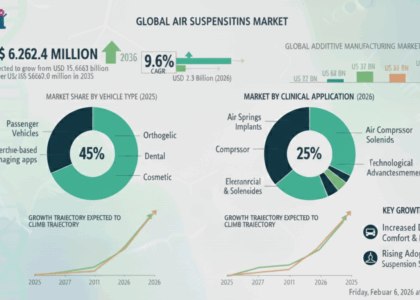The decentralized finance (DeFi) technology market is forecasted to witness high growth in between 2025 and 2035 owing to increasing adoption of blockchain-based financial services, rising demand for decentralized applications (DApps), and advancements in smart contract technology. The market is estimated to grow from USD 97,198.8 million in 2025 and projected to reach USD 11,56,517.5 million by 2035, at a CAGR of 28.1%.
From traditional banks to fintech startups, the financial world is undergoing an identity shift. At the center of this transformation is a technological force that doesn’t rely on middlemen, clearinghouses, or central authorities: decentralized finance, or DeFi. Built on blockchain networks and smart contracts, DeFi technology is not just rewriting how money moves—it’s rebuilding the infrastructure of trust itself.
It doesn’t have headquarters or banking hours, but it operates 24/7, borderless, and algorithmically. While often overshadowed by headlines about cryptocurrencies, DeFi’s underlying technology is the real disruptor—silently enabling a parallel financial system built on transparency, autonomy, and code.
Get Ahead with Our Report: Request Your Sample Now!
https://www.futuremarketinsights.com/reports/sample/rep-gb-18625
Beyond Bitcoin: The Engine Behind Permissionless Finance
While digital assets often take the spotlight, the core of DeFi is its technology stack. Smart contracts execute lending, borrowing, trading, and insurance without human intervention. Liquidity pools replace traditional order books, while governance protocols enable users—not corporations—to vote on system rules.
What this means is that the basic building blocks of financial services—once tightly controlled by centralized institutions—are now programmable, auditable, and open-source. In this model, trust shifts from brand names to blockchain protocols.
Overshadowed by Speculation, Driven by Infrastructure
Most headlines about DeFi revolve around volatile token prices and high-yield farming. But behind the scenes, the market is maturing through improved tools, scalable chains, and increasingly sophisticated protocols. The narrative is moving from speculation to utility.
While many early DeFi platforms prioritized speed and profits, the focus now is on long-term resilience, cross-chain interoperability, and user protection—creating a foundation capable of challenging mainstream finance, not just mirroring it.

Disintermediation at Scale
DeFi’s promise isn’t just about digital wallets—it’s about eliminating layers of inefficiency. Settlement delays, third-party fees, access restrictions—these are legacy problems DeFi sidesteps entirely. Anyone with an internet connection can access complex financial services, often with better transparency and faster execution.
For unbanked populations and emerging markets, DeFi offers inclusion. For sophisticated traders and institutions, it offers programmable liquidity and real-time transparency. And for developers, it provides a modular, permissionless playground to build financial tools never before possible.
Challenges in a Trustless Landscape
Decentralization doesn’t mean problem-free. Smart contract vulnerabilities, regulatory ambiguity, and network congestion continue to test the market’s durability. The absence of centralized oversight means the burden of security and compliance shifts to the code and the community.
But with each cycle of growth and correction, the technology becomes more robust. Formal verification, audit frameworks, and decentralized insurance are helping manage risk—building confidence in a system where trust is encoded, not enforced.
Exhaustive Market Report: A Complete Study
https://www.futuremarketinsights.com/reports/decentralized-finance-technology-market
The Invisible Backbone of Web3 Economies
As digital ownership, NFTs, DAOs, and metaverse platforms rise, DeFi becomes the financial glue holding it all together. Wallets become identity layers, tokens become governance tools, and yield protocols power digital economies. Whether users realize it or not, decentralized finance is increasingly embedded in the digital products and services of the future.
DeFi is no longer a fringe experiment. It’s becoming the default financial infrastructure for a new class of users, creators, and communities.
From Alternative to Essential
Ignore DeFi, and legacy institutions risk becoming slower, costlier, and less relevant. Embrace it, and finance becomes programmable, inclusive, and global by design.
Decentralized finance isn’t just a technical revolution—it’s a philosophical one. A system where trust lives in algorithms, access is permissionless, and innovation happens without gatekeepers. And the technology powering it? Quiet, resilient, and growing more essential by the block.





